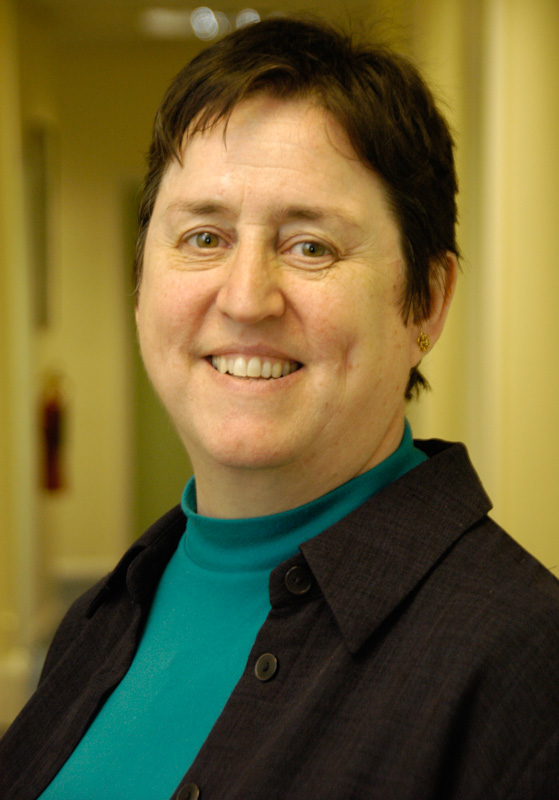We use cookies to make your experience better. To comply with the new e-Privacy directive, we need to ask for your consent to set the cookies. Learn more.
Prayer as a form of self-care
Gemma Simmonds, author of The Way of Ignatius, is on our blog for self care week, discussing how prayer is as essential to self-care as healthy eating, good sleep, regular exercise, and time with friends and family.
Gemma Simmonds, author of The Way of Ignatius, is on our blog for self care week, discussing how prayer is as essential to self-care as healthy eating, good sleep, regular exercise, and time with friends and family.
1. How has Ignatian prayer been helpful to you?
One of the most important things to me about the Ignatian tradition of prayer is that it’s tailor made for people like me, as it takes the concrete details of lived reality seriously. I tend to live life in the fast lane – I live fast, drive fast, eat fast and more often than not speak and act before I think! This means I get a lot done, but it also means I can make mistakes, either in what I do or how I speak, judge and act. I can hurt people and get hurt in the process. Ignatius was a man of action, living in times which called for active, enthusiastic people who were committed to responding to the many new demands of a world that was rapidly changing. The way of prayer and of reflective living he taught in his Spiritual Exercises, in his letters and in the rule of life he wrote for the Jesuit religious order he founded is typical of this kind of a man. Ignatius had also made rash mistakes and errors of judgment as a young man, and over time he learned to value the power of discernment, which is a posh word for being in touch with our inner impulses, fears and desires, what attracts us, what holds us back and what drives us. It also means being in tune with the Spirit of God at work within us and within our world.
For Ignatius there was no divide between the sacred and the secular. There were no rarefied holy ghettoes or godless situations. Everywhere and every human situation holds the potential for us to say yes or no to the God who is always at work within us and in our world. So the important thing is to stay alert and closely in touch with where I sense God’s presence in the day to day little details of my life as well as in the big picture. It’s also important to be sensitive to when I withdraw from that presence either through a deliberate choice or, more likely, through just switching off, or drowning out the still, small voice of God with mental noise and being over-busy. So in that sense I find Ignatian prayer, especially what is called the Examen, or the prayer of awareness, a hugely useful reality check. A friend of mine’s elderly father used to say, ‘If you’re too busy, you’re too busy…’ Ignatian prayer helps busy people to be contemplatives in action and to find God in all things – every detail of our crazy, noisy third millennium life.
2. What sets Ignatian prayer apart from other traditions?
One of the characteristic features of Ignatian prayer is that it takes the imagination and our desires seriously. I’ve always had a vivid imagination since I was a small child and terrified myself into nightmares about things lurking in dark corners or under the bed. But I’ve also always found stories spell-binding, and loved books, films and music that fire my imagination. Our imagination is where our day dreams live and these often reveal to us what we long for as well as what we’re afraid of. There’s a lot of feeling within our imagination and we can find out a great deal about our deepest desires or deepest fears by paying attention to the imagined encounters and conversations that go on in our heads.
Ignatius found that using fantasy and imagination was a wonderful way to get stuck into the stories in Scripture, and by doing that, to enter into a personal relationship with Jesus. Many of the stories in the Gospels are high drama: the religious officials try to provoke Jesus into supporting them in a judicial murder by condemning a woman they have dragged out of bed, in the middle of committing adultery (the man involved, of course, is nowhere to be seen). Jesus refuses and turns the focus back on their own sins. An enemy soldier from the occupying Roman force humiliates himself by coming to plead for the life of a beloved servant. He knows that Jesus won’t come into his house as he would be contaminated by being in the house of a Gentile, but Jesus offers to come all the same. A foreign woman argues with Jesus in order to secure the healing of her little daughter. Jesus at first refuses, but then allows her to change his mind. There are strong emotions involved here, and by entering into the scene with our imaginations turned up to maximum the stories become a kind of medium through which we discover what it is we ourselves need and long for, and we enter into a life-changing conversation with Jesus himself, just as these characters did.
It matters what we nourish our imaginations on. If we feed them on an unlimited diet of aspirational lifestyle TV and advertising, on sex at one remove, without commitment, on violence without remorse, then it’s going to have an effect on where our heart lies. Jesus himself said, ‘where your treasure is, there will your heart lie’. So using our feelings and imagination in prayer helps to reveal to us where our heart truly lies. Ignatius believed that the Holy Spirit operates at the level of our deepest desires, revealing God’s dream for us. So this kind of prayer helps us to discover what we really, really want and to enter into conversation with God about it. It might lead us in quite different directions than the ones we imagined for our lives. Or it might give us the courage to do something that we’ve always longed to do without the confidence to give it a try.
3. How have you found prayer useful in terms of self-care?
I always know when I haven’t been praying enough. I get sort of de-railed and lose touch with what’s going on inside. I sometimes get to the end of a day and realize that I never got round to having lunch, or find my eyes or neck and shoulders are aching because I’ve been bent over a book or a computer all day. People say, ‘Hasn’t it been a gorgeous day?’, or ‘did you get caught in the rain?’, or ‘did you see that fabulous sunset?’, and I realize I’ve simply not been connecting with the here and now. I have a sense of having missed out on what it means to be alive, to live in the present moment and to enjoy the little things of life. These can be such a gift, as can spending time with friends or really paying attention to people we meet or work with. When I don’t pray properly it’s as if I’m hearing everything in mono instead of stereo or seeing things in black and white instead of colour. I have a sense of living at a low percentage, and I really want to be a 100% kind of person – or at least 80, as opposed to 30 or 40%.
In recent years I’ve lost five wonderful friends who were only just touching 40. They had so much life left to live and they died without seeing their children grow up, or finding their life partner, without achieving their greatest potential as human beings. That makes me so sad. I have a sense of lost opportunity, lost potential and lost living time. That’s the same sense I get about not praying regularly and deeply. It’s not about techniques – I’m generally very against self-help books about prayer, as they often just reinforce people’s sense of being no good at it. Ignatius teaches us that anyone and everyone can pray. It’s in our DNA – we’re wired for it, which is why we lose out so much when we don’t do it. When we develop a habit of prayer we come alive at levels of ourselves we never knew we had – it’s a bit like that lager advert – it reaches parts of ourselves that other things can’t reach. So yes, I think prayer should be as much part of our daily care routine as brushing our teeth. It doesn’t have to be hours in a dark chapel or falling into grand ecstasies. We might not getting anything out of it at all on a conscious level and can come away feeling that we’ve just been staring into a void or sitting in emptiness. We don’t have to be on our knees all the time, either. It can be while we’re sitting on the bus or walking the dog or cooking the supper or having a shower. There are some great helps online these days, if we aren’t sure how to go about it, such as Pray As You Go. All we have to do is to turn up. God does the rest, whether we’re aware of it or not.
Prayer can help us to get back in touch with our feelings again. There are lots of psychologists and agony aunts and uncles who remind us that it’s important not to disconnect from our feelings. That can have serious consequences for our physical as well as our emotional and psychological health. Prayer can help us to find a boundaried space where our deepest feelings can emerge, and it gives us a relationship where we can take all our feelings, even the ones we don’t like to acknowledge like anger, resentment, shame and hurt. There is no feeling, no experience we can’t share with our loving God, who knows what we feel even before we do. We can rage and rant, we can mourn and complain as well as exulting with joy and hugging ourselves with happiness – all of it belongs in prayer. Prayer means we’re never alone, even if we’re feeling abandoned or isolated. Jesus said, ‘I am with you always’. It hugely matters for our wellbeing that we believe and remember this and touch into what it means for us on a regular basis.
4. How have you seen Ignatian prayer enrich others’ lives?
I’ve been very privileged to accompany other people on Ignatian retreats, when they take time out to concentrate on prayer and on building their relationship with God. This can be over a period of intensive time alone: a day or a week – even a month for the really brave! Or it can be a retreat in daily life, where people commit to praying for half an hour or so a day during a week, or perhaps a few times a week over a month, and they come and talk one to one about what happened in their prayer. For many people, especially in these Weeks of Guided Prayer, it’s the first time in their lives that they’ve ever talked about their prayer life or been listened to so attentively, and they find it mind-blowing. All of a sudden things start to come into focus, or rise to the surface that they haven’t noticed before. Perhaps they realize a need for healing of long-ignored hurts, or they recognize a deep desire that they haven’t allowed themselves to entertain. Maybe they’ve told themselves for years that they’re rubbish at prayer, and now they realize it isn’t true. Either way, quite often in a retreat, once people have got into this deep sense of relationship with God, you as the guide just sit back and let them get on with it, making reassuring noises if and when they’re needed, or maybe asking a judicious question, or making a gentle suggestion to get them going or move them on if it seems right.
There can be quite dramatic shifts in people’s lives, like a decision to get married or move out of a painful and damaging relationship, or move on from a dead-end job. Or maybe they begin to come to terms with a loss, or damage from their childhood, or a trauma related to political or external events. Sometimes they come to see themselves in a whole new light, and grow almost visibly in confidence and a sense of the amazing grace in their lives. They develop what has been called ‘a passion for the possible’. All that can and does happen – I’ve seen it repeatedly over decades of this kind of work. But there’s also the unobtrusive kind of growth – learning to meet the God who lies hidden in the little things, as Pope Francis says. Maybe people don’t suddenly rush up a high mountain, but they find the energy and encouragement for the long haul. I’ve accompanied the same people over a number of years and seen them slowly but surely growing in wisdom and self-understanding, dealing with entrenched habits that are not helping them and growing beyond damaging patterns of life and relationship. All of this happens through prayer and through the self-awareness that Ignatian prayer can help us with. And you don’t even have to join a gym!













